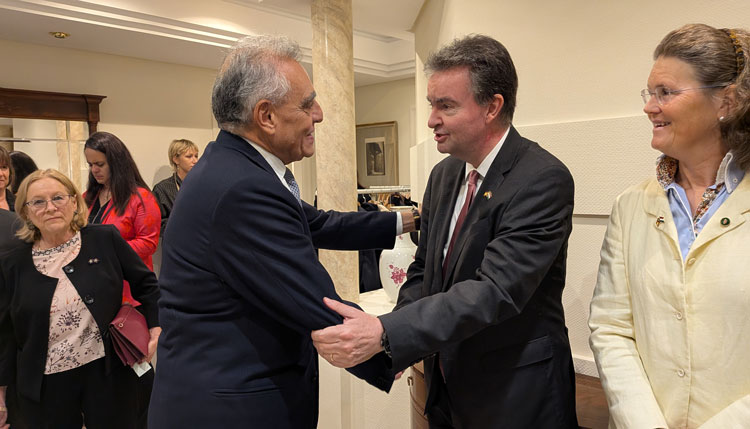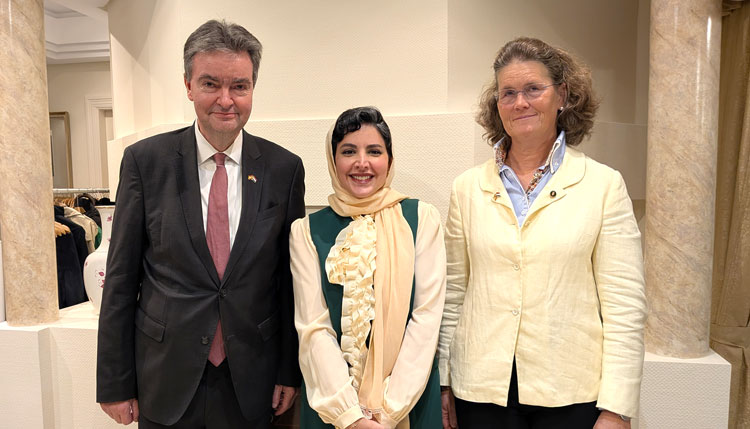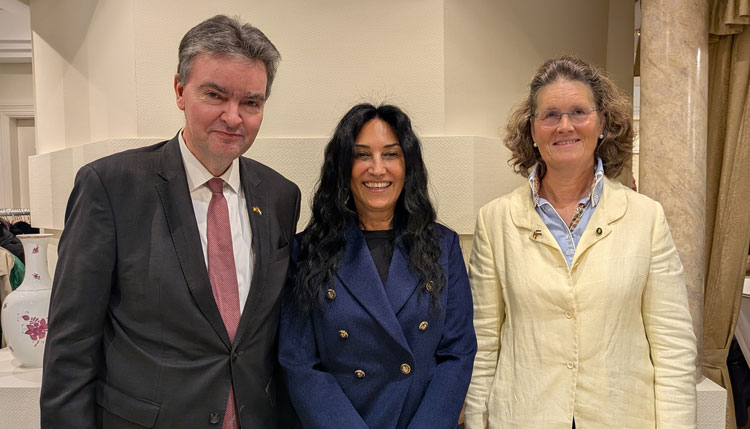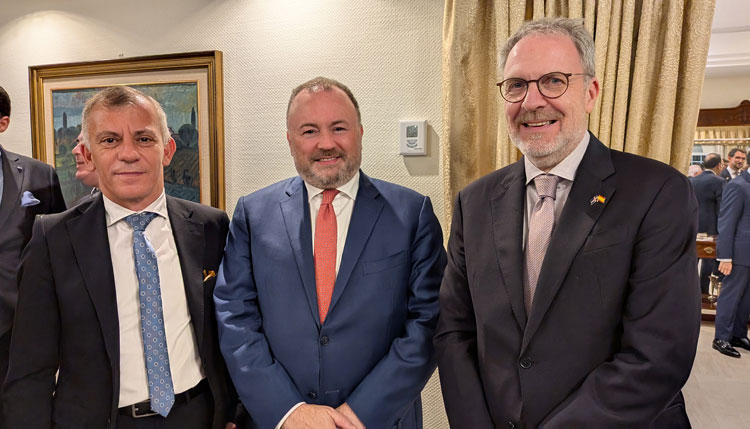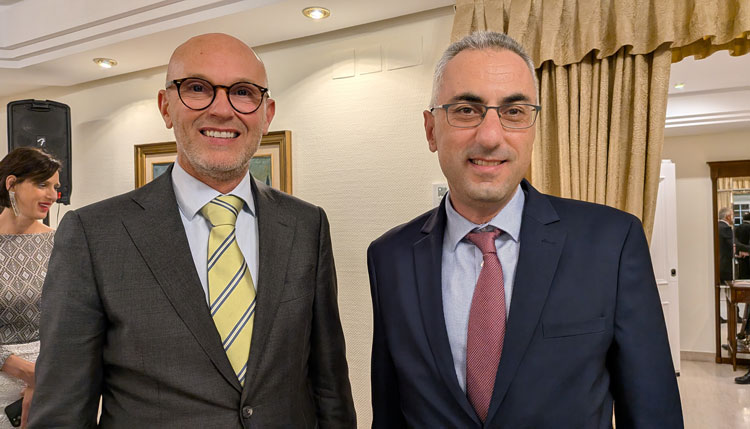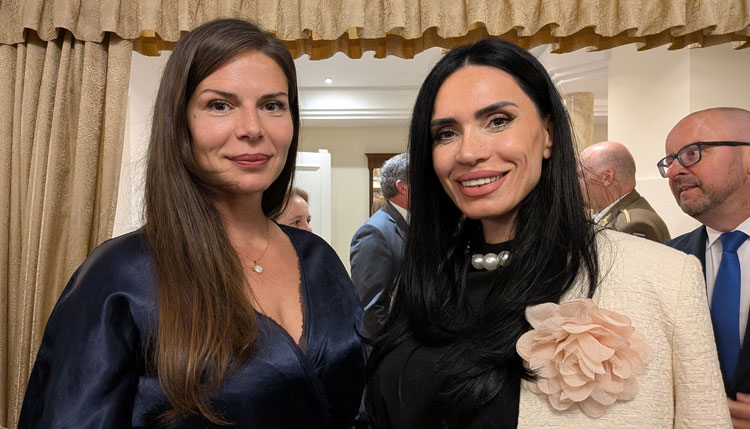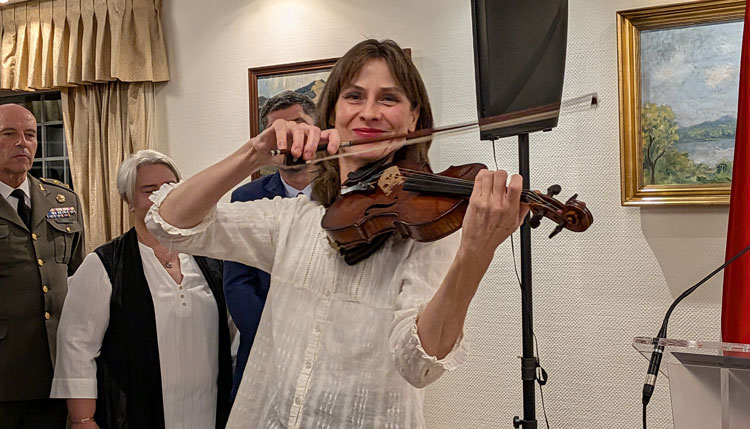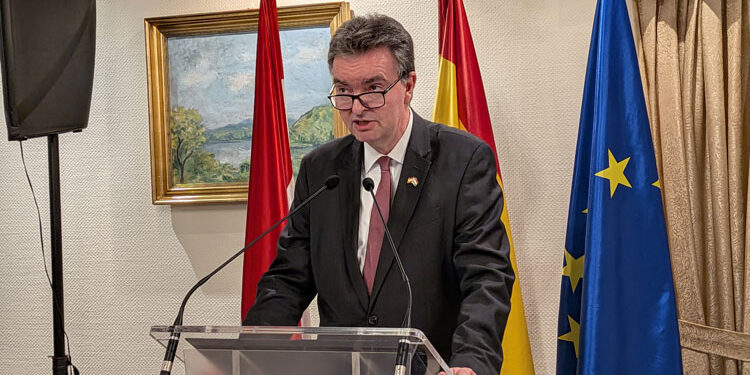Text and photos: Juan David Latorre
The newly-arrived ambassador of Hungary, George of Habsburg, held a reception at his residence last Tuesday on the occasion of the National Holiday of the Central European country, which was attended by the president of the Hungarian Constitutional Court, Péter Polt.
The Hungarian ambassador wanted to stress at first that his words were addressed “to all those united by respect for freedom and human dignity as common values”.
“The autumn of 1956 was one of the most glorious but also tragic chapters in Hungarian history, said the Hungarian ambassador. I believe that in the 20th century there were three great wars, the First, the Second World War and the Cold War. In the first, the battle of Verdun; in the second, the battle of Stalingrad; and in the third, the Cold War, Budapest was the battlefield that changed the course of history. In 1956, the Hungarian people not only fought for their own freedom but also drew the attention of the whole world. In the struggle against communism, we Hungarians nailed the first nail to the coffin of dictatorship. Although the revolution failed, the victims were not in vain. In 1956 it became the spark that decades later led to the weakening and fall of communist regimes worldwide. This courage and desire for freedom have continued to defend the soul of Hungary ever since. After the fall of the dictatorship, Hungary was able to breathe again.”
Already referring to the strict current, George of Habsburg stressed that “true to its nature, the country has again opened itself to the world in areas of openness, connectivity and cooperation. In the heart of Europe, a country that is proud of its history but looks to the future has been rebuilt. Today, we continue to defend this openness in economic relations, in the cultural and educational sphere, in dialogue and mutual respect”.
“Our relations with Spain have been getting closer and closer, continued the Hungarian ambassador. More and more Hungarian and Spanish companies are collaborating with each other, and the number of cultural and scientific partnerships is increasing year by year. The Spanish language and culture are becoming increasingly popular in Hungary, while Hungarians discover Spain with growing enthusiasm not only as a tourist destination but also as a friendly and partner country whose people are equally proud of their history, identity and independence. I am confident that in the coming years we will be able to further deepen this cooperation, both economically and culturally and humanly. However, for this, and we Hungarians know this very well, peace is indispensable. Under the shadow of war in the eastern part of the continent, Hungary is committed to peacemaking and peacekeeping.”
Ambassador George of Habsburg said that “the future of Europe can only be guaranteed through dialogue, mutual respect and peaceful cooperation. A national holiday is always a good occasion to thank those who risked their lives for freedom. The courage of the heroes of ’56 remains today our compass, reminding us that freedom is never an acquired right but a constant responsibility. This legacy compels us, the Hungarians, and also our friends from all over the world, to preserve together these values for which the heroes of 56 fought”.
To conclude the act, Hungarian violinist Andrea Szamek performed a brief sample of Hungary’s rich folk music tradition.
